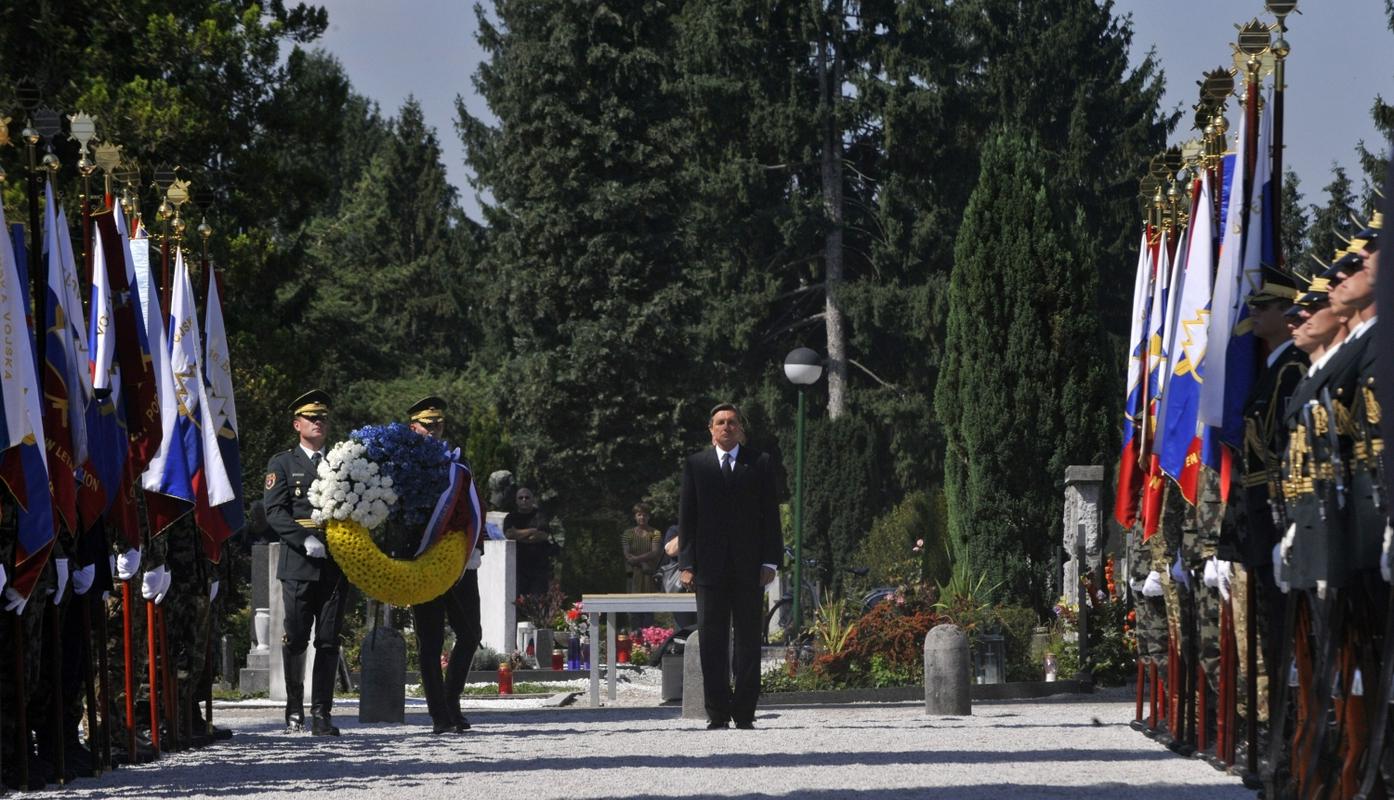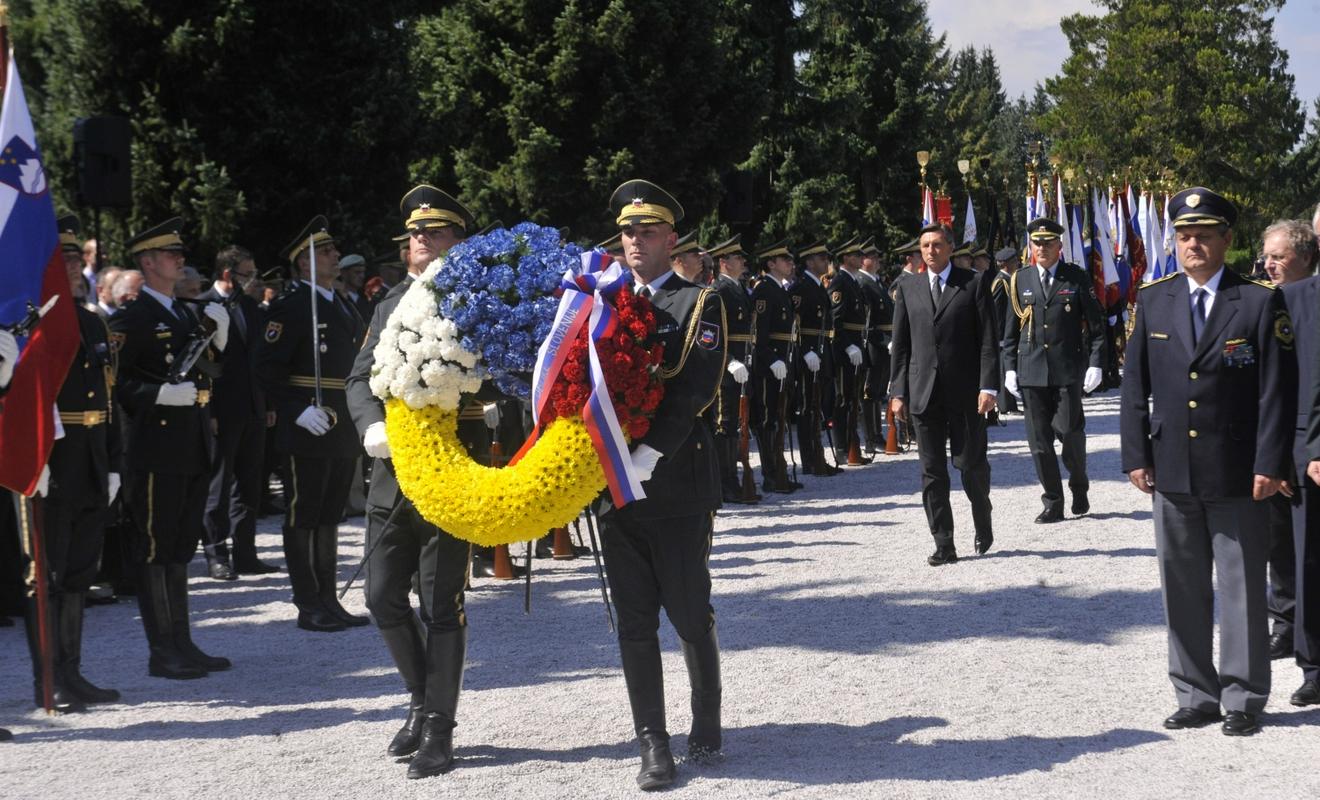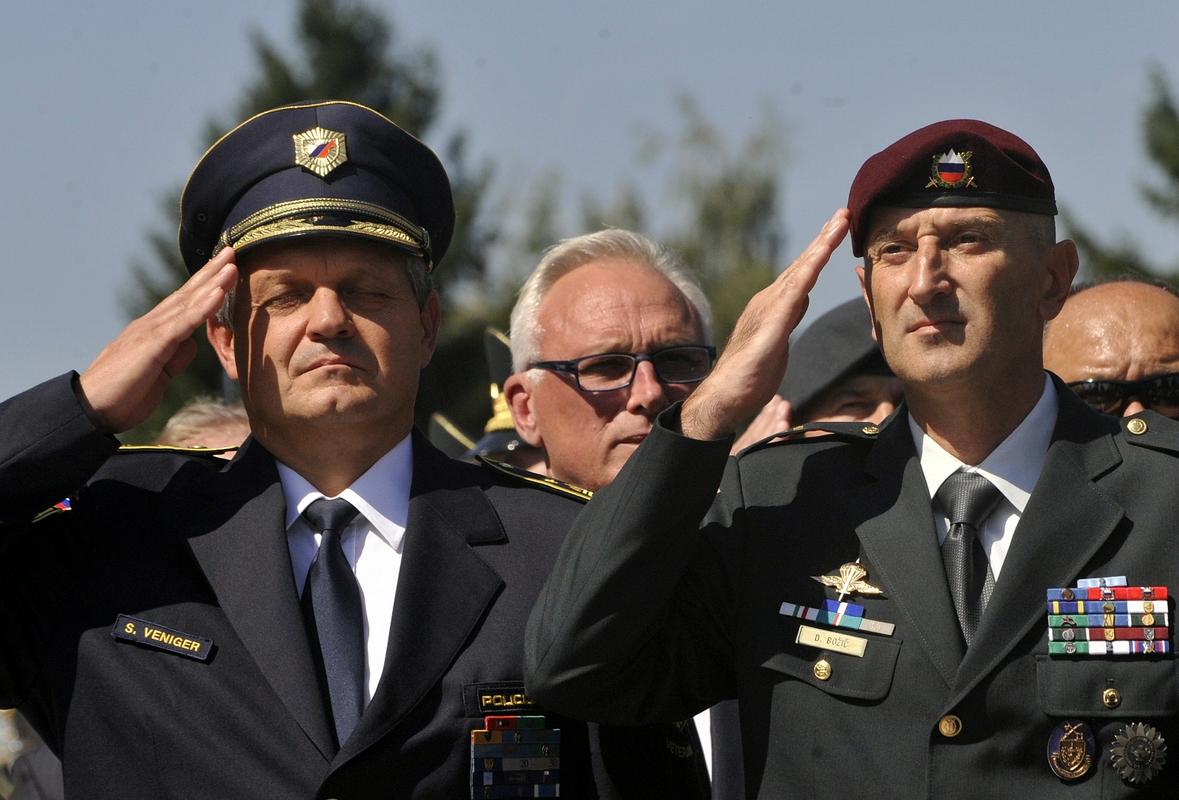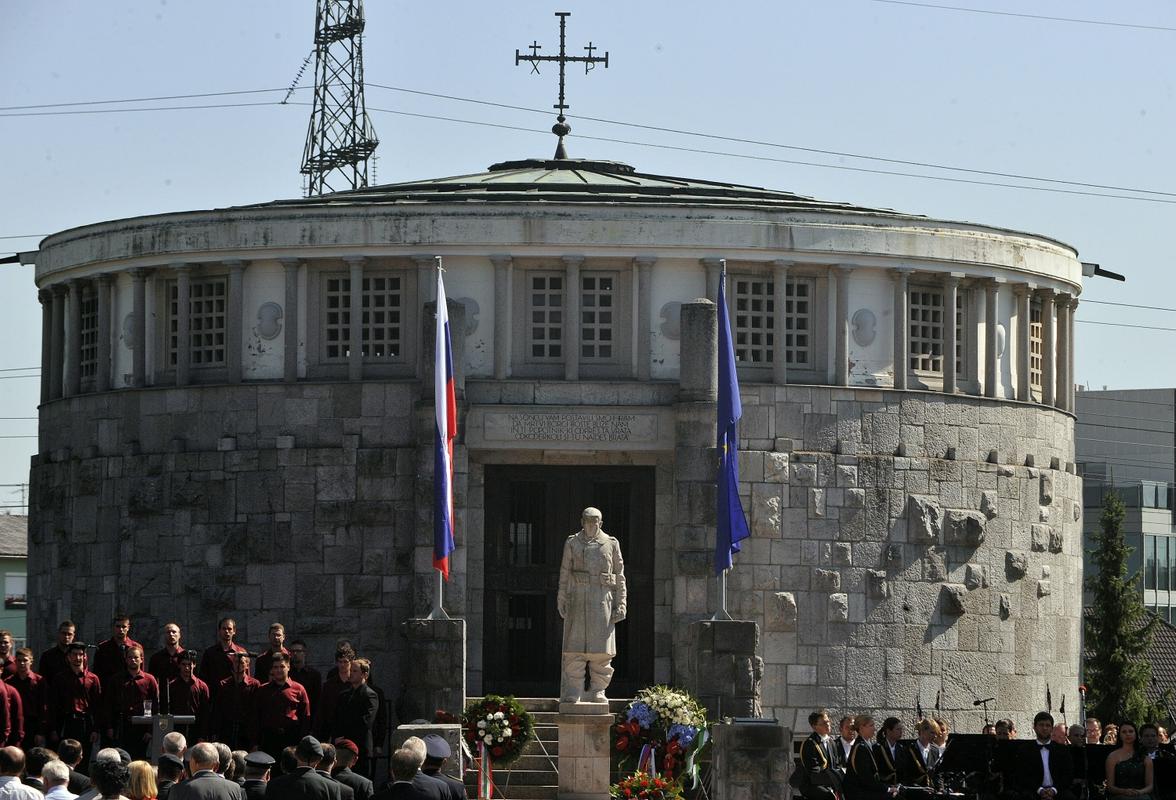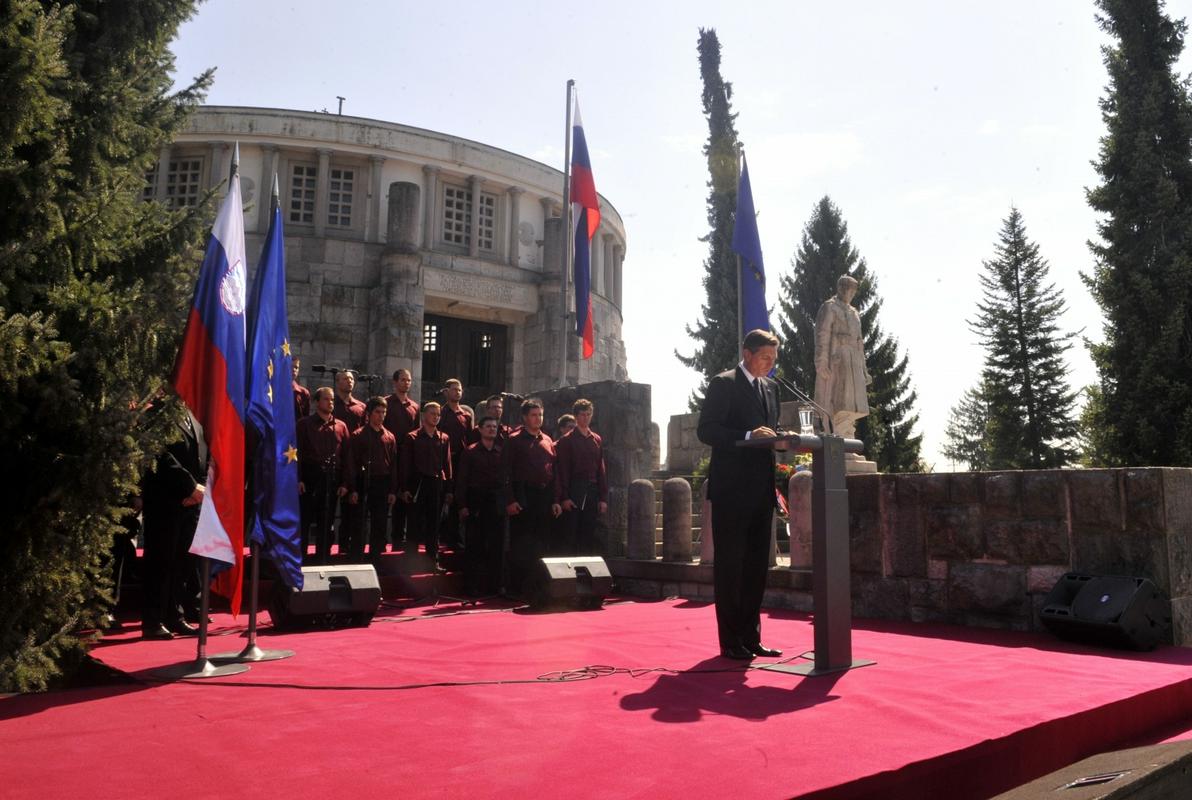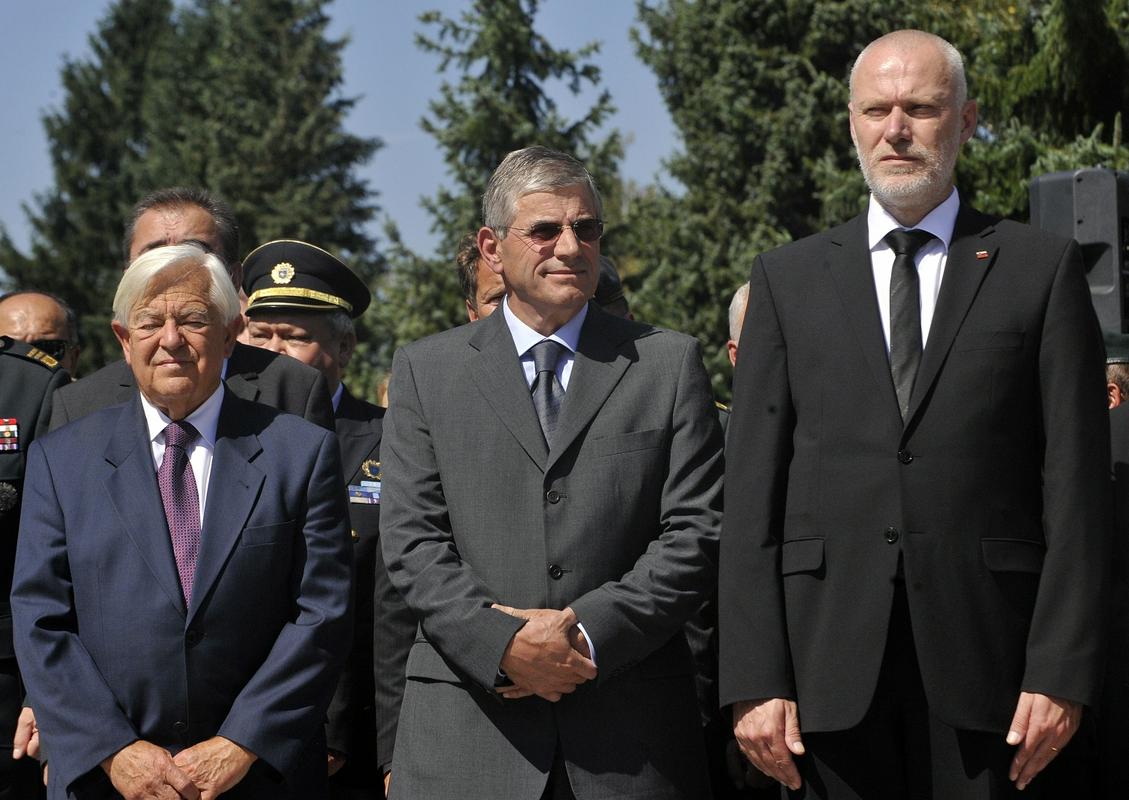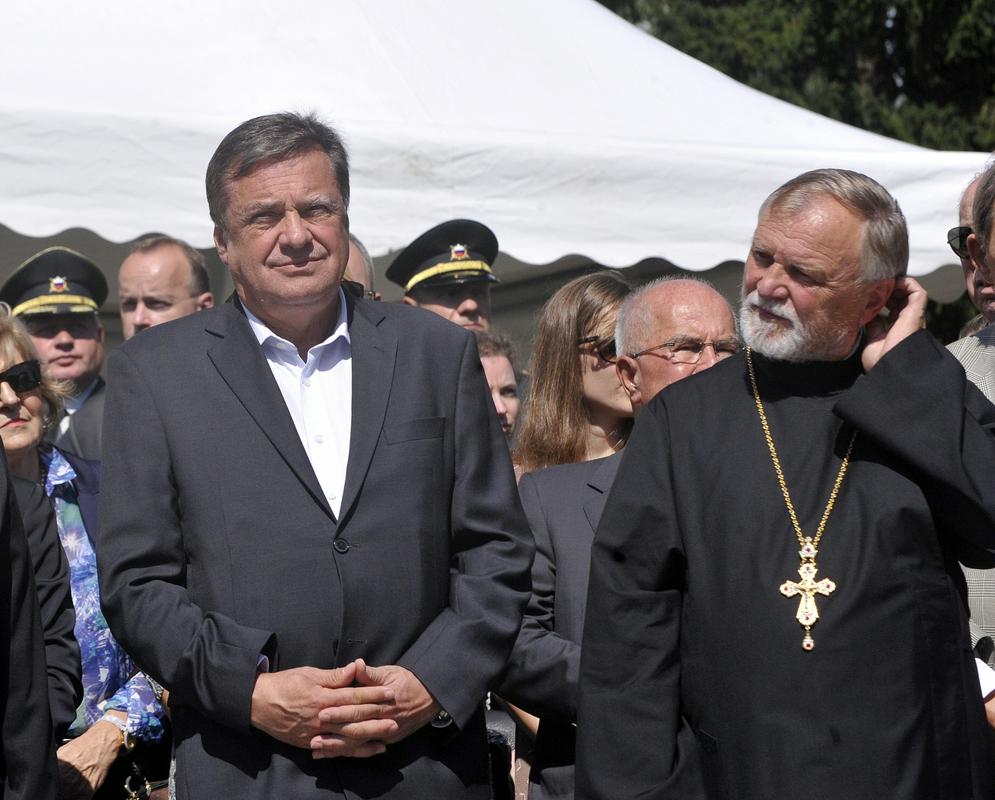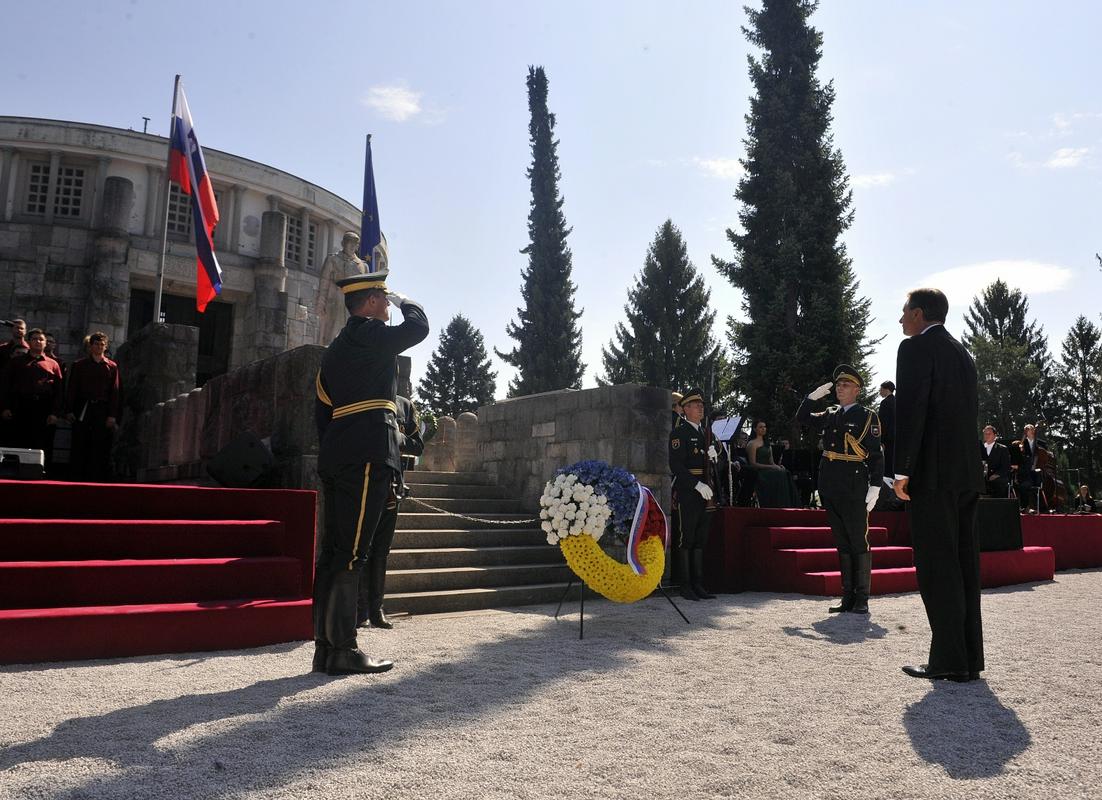

Upon the 100th anniversary of WWI, Slovenia's leadership paid respect to all the military and civilian victims with a commemorative ceremony in front of the ossuary at Ljubljana's Žale cemetery. The main speaker was the President of Slovenia, Borut Pahor. He reminded that 100 years ago nobody even considered that the conflict could become global. After its end, nobody believed that it would only be the first world war.
"World War I is often considered the apocalyptic overture to the second world war. This deformed impression creates an image of a demonic narrative, in which following a logical sequence of history, it is only a matter of time when world war three begins." However according to Pahor war is always a question of choice. "The victims of the Soča front were not a historical necessity. They were victims of bad judgment and decisions."
Wars are not inevitable and such decisions always have to be reconsidered. "In that sense, a time of peace is not only a time without war, but also a time when we consciously strive to eliminate the reasons and excuses for it," added Pahor.
Country's leadership pays tribute
The Speaker of the National Assembly, Milan Brglez, National Council President Mitja Bervar, Constitutional Court President Miroslav Mozetič, Supreme Court President Branko Masleša, outgoing ministers and MPs, the Chief of the General Staff, Dobran Božič, the Director General of the Police, Stanislav Veniger, and representatives of Slovenia's religious communities all paid respect to the victims of WWI, both soldiers and civilians.
This is the first of the planned four state ceremonies organized by the National Committee for the Commemoration of the WWI Anniversary.
No precise figures for the number of dead
World War I left behind long-term consequences on Slovenia's land and people. It quickly became clear that the war was not to be a short-lasted battle for resolving political conflicts. It turned out to be a violent conflict which would prove difficult to stop. The long four years of continuous fighting, that also took place on Slovenia's territory, affected almost every Slovene family.
The Austro-Hungarian army recruited around eight million soldiers. Between 160.000 and 180.000 came from Slovenia's lands. At least 35.000 never returned, although there are no precise figures for the number of dead. There are also no records on the number of civilians that lost their lives because of the attacks and consequences caused by the war. Shortages, hunger, infectious diseases, mobilizations, refugees and notifications of deaths are what marked this period, leaving only bitter memories.
Ana Svenšek; translated by K. J.




















































